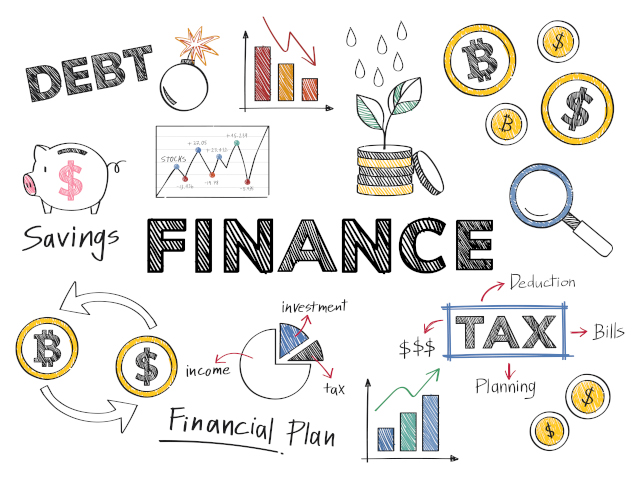
Personal finance is arranging to spend, save, and invest money in such a way that allows you to live comfortably, have financial security, and achieve your goals. It covers various topics, including banking, credit cards, budgeting, saving, and investing.

In This Article
Budgeting
Budgeting is the most basic finance skill and involves creating a detailed plan of how to spend earned money over a certain period of time, for instance, a month.
The purpose of creating a budget is to understand how much money you earn and how you can best allocate that income into different portions of your expenses. It helps you stay within your means until the next income period. It will help you avoid turning to debt to pay your bills.
Even though an essential part of financial planning, budgeting is often viewed as a troublesome task whose purpose is to restrict spending and limit fun activities.
The truth is, budgeting can help you avoid grievous financial mistakes. For instance, a budget will always remind you how much money you have left and how you’ve planned to spend it. This way, you’ll avoid getting into debt.
Furthermore, it can reveal hidden cash or unnecessary spending and free up more money to be employed towards other financial goals.
Debt Management
You might think that the most sensible thing is to pay off all debt as soon as possible. However, not all debt is the same, and not all debt is bad. Financially savvy people know how to take advantage of debt to build wealth.
The best strategy is to keep your interest rates as low as possible. To do so, you’ll need to find out the interest rates of all your debts. You’ll then want to create a payment plan that will get rid of the highest interest rate debt first.
Credit card debt has a notorious reputation for having insane interest rates.
Saving
The compounding effect is one of the most powerful financial strategies to grow wealth. The principle explains how small and seemingly insignificant actions taken consistently over time can produce massive returns.
When it comes to saving, most people think that they don’t have enough to put aside. The truth is, the earlier you start saving, regardless of how small the amount is, the better the compound effect works for you, and the earlier you can achieve your financial goals.
The best time to start saving was yesterday, and the next best time is now. If you wait too long, the more you’ll need to put aside to achieve your goals. If you’re in your 20s, aim at putting aside 10% of your income.
With the power of compound effect, your savings will go a long way towards achieving your retirement goal. If you wait until you’re 30 to start saving, you’ll need to put aside 20% or more to achieve your retirement goal.
Investing
Investing is a way to make your saved money work for you. It’s the best way to grow your wealth.
Once you’ve saved some money, you don’t want to let it sit in a bank account. It might sound safe, but inflation will eat it away. While you want to have your emergency fund(short-term savings for emergencies) in a bank account for easy accessibility, you should consider investing your long-term savings.
If your employer offers a 401(k) account, for example, take up the offer and contribute the maximum amount in order to get the employer match.
In addition to a 401(k), investing in an index fund will help diversify your investments. Index funds are a safe way to invest because they track a large number of stocks, therefore reducing your risk.
Investing in a fund that tracks the S&P500 would mean that you’d be exposed to the top 500 companies in the US. Examples of such funds include VFINX (Vanguard), FXAIX (Fidelity), BSPAX (iShares).

















